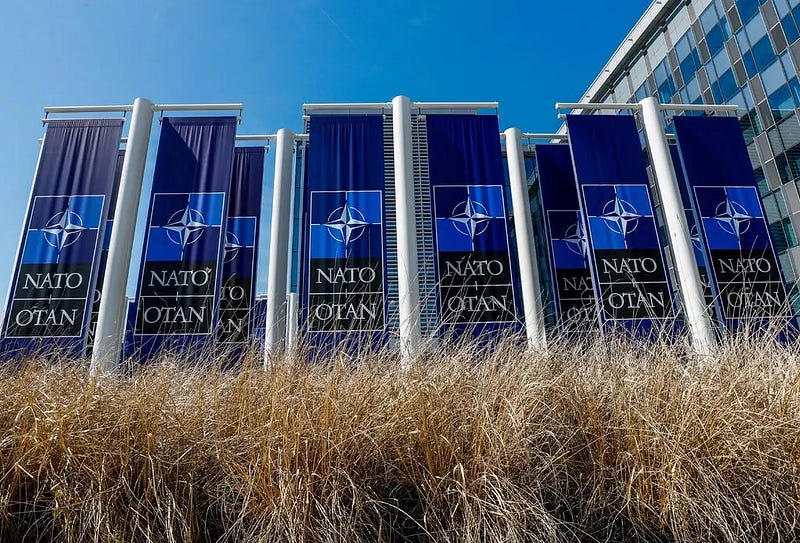
In recent years, the question of Ukraine’s potential membership in NATO has resurfaced, with the upcoming bloc’s summit in Vilnius, Lithuania, drawing attention to this matter. Ukraine has expressed its ambition to receive a political invitation to join NATO, signaling a desire for closer cooperation. It is important to clarify that Ukraine is not seeking immediate NATO membership. President Volodymyr Zelensky acknowledges the need to join after the war with Russia concludes and is not seeking to entangle NATO members in the ongoing conflict by invoking Article 5 of the North Atlantic Treaty.
What Ukraine seeks is a political invitation that would put an end to the “strategic ambiguity” that has persisted since the 2008 NATO summit in Bucharest. At that time, the alliance decided that Ukraine would eventually become a member but failed to provide a clear roadmap for its accession. This lack of clarity has left Ukraine vulnerable and created an opportunity for Russian President Vladimir Putin to launch invasions.
While concerns about the risks of admitting Ukraine into NATO persist, the focus should shift to the perspective of the Ukrainian people who have directly suffered from the ongoing conflict. With 78 percent of Ukrainians having lost close relatives or friends in Putin’s war and experiencing continuous Russian attacks, arguments against Ukraine’s NATO membership appear unfounded and insensitive.
Furthermore, the notion of excluding Ukraine from NATO to avoid further provoking Russia is illogical. Putin had already threatened to use his nuclear arsenal long before Ukraine requested a political invitation. Regardless of the decision made at the summit, he will likely continue to pursue aggression. It is crucial to recognize that nobody is more averse to escalating the war into a global conflict than Putin himself. The Russian Army is ill-prepared for a military confrontation with NATO and is currently struggling against Ukraine’s armed forces.
On the other hand, the risks of not inviting Ukraine to join NATO are significant. Denying Ukraine a political invitation would be perceived as a victory by Putin, reinforcing his de facto veto power over NATO enlargement and confirming the effectiveness of his strategy of waging wars and occupying territories to prevent neighboring countries from joining the alliance. As long as Ukraine remains in limbo, Putin will continue to attack and undermine Ukraine’s sovereignty, with aspirations of expanding his influence. Future NATO membership provides the best insurance against such aggression.
Delaying the decision further would also have adverse effects on Ukraine’s ongoing democratic transformations. While some reforms are necessary for Ukraine’s accession to the European Union, others, like ensuring civilian control over the military, are more likely to succeed if included as a precondition for joining NATO. If the process stalls, NATO may have to contend with a million-strong army operating without full democratic civilian oversight. Integrating Ukraine’s army into the collective security structure is essential, considering its emergence as one of Europe’s most robust forces and its recent experience in combatting Russia.
Moreover, failing to act on Ukraine’s NATO membership bid this week would discredit the alliance in the eyes of Ukrainians and millions of residents in NATO member states who support Ukraine’s integration. Recent opinion polls indicate strong support for Ukraine’s NATO membership in countries such as the United States, France, and the Netherlands. Maintaining the status quo sends the wrong message to Ukrainian mothers concerned about the safety of their sons, demotivates Ukrainian soldiers fighting under challenging conditions, deters potential investors in Ukraine’s reconstruction, and discourages the millions of Ukrainian refugees longing to return home.
Some NATO leaders may argue that they are not against Ukraine’s eventual membership but question the timing. However, the notion of perfect timing is elusive. Waiting until next year’s NATO summit in Washington, amidst a U.S. presidential campaign, raises doubts about a more opportune moment. Ukraine’s pursuit of NATO membership will persist, reminding Western capitals that it was their fear of escalation from Putin’s side that contributed to the largest war in Europe since World War II.
The United States, in its efforts to help Ukraine defend itself, thwarted Putin’s ambitions of recreating a Russian empire. Granting Ukraine a political invitation to join NATO in Vilnius now is the most effective way to bury Moscow’s imperialist dreams once and for all. Alyona Getmanchuk, the founder and director of the New Europe Center think tank in Kyiv and a nonresident senior fellow at the Atlantic Council’s Eurasia Center, emphasizes the importance of this decisive step towards ensuring peace and stability in the region.